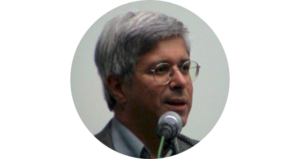
Residency Period: 08/01/2011 to 07/31/2012
Professor Rodrigo Duarte holds a degree in Philosophy from the Federal University of Minas Gerais (1982), a Master’s degree in Philosophy from the Federal University of Minas Gerais (1985) and a PhD in Philosophy – Universität Gesamthochschule Kassel (1990). He carried out postdoctoral internships at the University of California at Berkeley (1997), at the Universität Bauhaus de Weimar (2000) and at the Hochschule Mannheim (2011). He is currently a professor at the Department of Philosophy at the Federal University of Minas Gerais. He has experience in the area of Philosophy, with an emphasis on Ethics, Aesthetics and Social Philosophy, working mainly on the following subjects: Frankfurt School, Adorno, art autonomy, contemporary art and mass art. Since May 2006 he has been president of the Brazilian Association of Aesthetics (ABRE). Among numerous publications in Brazil and abroad, his books stand out: “Marx and the Concept of Nature in ‘O Capital’” (1986), “Mímesis and Rationality – The conception of the domain of Nature in Theodor W. Adorno” (1993), “Adornments. Nine essays on the Frankfurtian philosopher” (1997), “Adorno/Horkheimer and the Dialectic of Enlightenment” (2002), “Critical Theory of the Cultural Industry” (2003), “Saying what cannot be said. For a philosophy of expression” (2008), “Deplatzierungen. Aufsätze zur Ästhetik und kritischer Theorie” (2009) and “Cultural industry: an introduction” (2010), “Art” (2012) and “Post-history of Vilém Flusser” (2012, in press).
VILÉM FLUSSER AND THE BRAZILIAN STETOSPHERE
This project will seek to investigate the thought formation of the Czech-Brazilian philosopher Vilém Flusser and the relationship between Vilém Flusser’s media philosophy and his reflections on Brazilian life and culture.
From both Flusser’s position on “post-history” and the tone of his reflections on Brazil, it seems opportune to work on establishing the concept of “stethosphere”, which would synthesize, in the case of the general post-historical situation, the predominance of technical images, also pointing to their possible harmful consequences.
On the other hand, bearing in mind not only FLusser’s published work that deals with both post-history and Brazil, but also unpublished material that I obtained in research at the Flusser Archiv, in Berlin, I intend to emphasize the possibilities of post-history in a sense more generally and, in particular, the Brazilian potential for a breakthrough in the conquests of freedom and fulfillment of all humanity. From there, it would be possible to understand the positive side of the “stetosphere” concept.